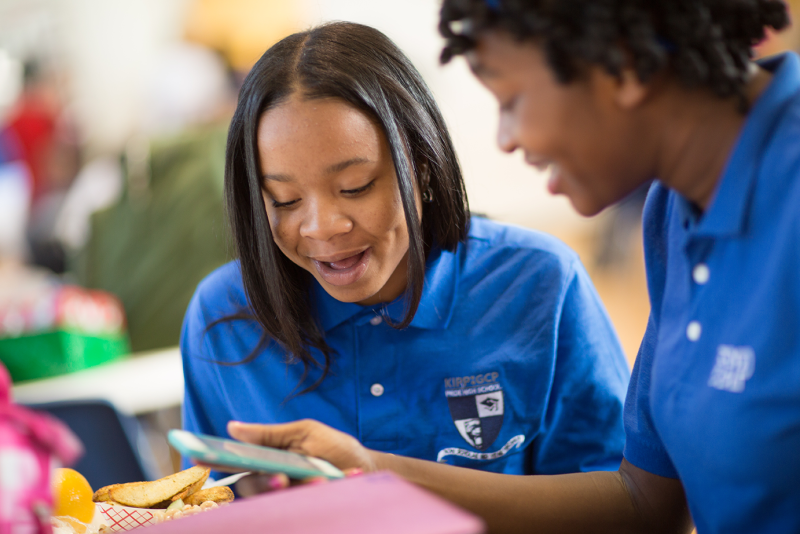Where We Work
See our interactive map


Real Talk links students to real stories and high-quality health information on their phones. Photo courtesy of MyHealthEd, Inc.
A new app brings sex ed directly to middle school students through storytelling—on their phones.
When it comes to learning about relationships and sex ed, middle school students want to learn from others’ experiences and know they’re not alone. And they don’t always get this in school.
In order to meet these needs, MyHealthEd is building a new app called Real Talk to bring sex ed directly to middle school students through storytelling—on their phones.
While the teen pregnancy rate is at an all-time low in North Carolina, there are still major disparities between counties. For example, the teen pregnancy rate in rural Warren County is more than five times that of nonrural Orange County. From interviews with teachers, we know that access to high-quality, comprehensive sex ed curricula is limited, and not all health teachers are comfortable or willing to educate teens on all of the topics covered by the Healthy Youth Act of 2009.
One of the best ways to deliver information is through storytelling.
In addition to sharing stories, we want Real Talk to link students to high-quality, comprehensive resources like Sex, Etc. and Scarleteen, so students can access the health information on their phones.
Rachel Anderson is a veteran sexuality educator at the Carolina Friends School here in the North Carolina Triangle. As a founding board member for our nonprofit, she believes in the power of stories.
"It's important for adolescents to get information about comprehensive sexual health,” she says. “One of the best ways to deliver that information is through storytelling. It's the sharing of thoughts, questions, experiences, hopes, and fears. It makes it real for them."
How does Real Talk elevate teen voices?
We want to increase access to high-quality sex ed to students in low-resourced, rural areas. When Real Talk launches in September 2017, we will solicit real-time feedback from our teen users and learn from them to improve the Real Talk experience. In the immediate future, we hope to increase the quantity and quality of conversations our Real Talk users have with others in their lives about sexual health and relationships.
Liz Chen and fellow MyHealth Ed cofounder Vichi Jagannathan presented their switchpoint—Health education + tailored online curriculum—at SwitchPoint 2013.
Get the latest updates from the blog and eNews




